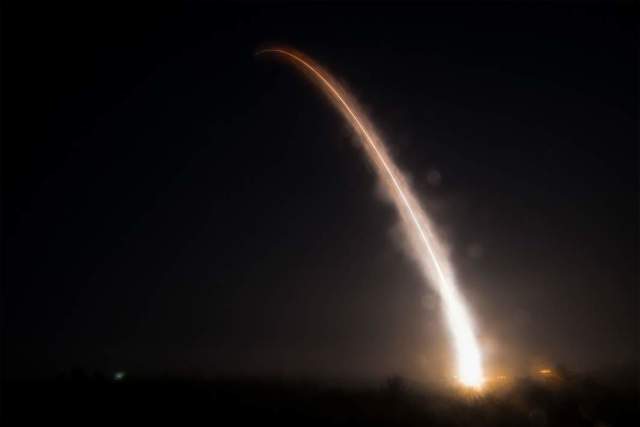Professor Peter Kuznik believes that the leaders of the United States and NATO are making two dangerous assumptions about Russian President Vladimir Putin and his advisers, which "pushes the world closer and closer to World War III"
WASHINGTON, June 3. /Correspondent of TASS Anton Chudakov/. Western countries are desperate and are already ready to take the risk and go to nuclear war in order to prevent Russia's victory in Ukraine, which is already inevitable. This opinion was expressed in an interview with a TASS correspondent by the director of the Institute for Nuclear Research at the American University in Washington, Professor Peter Kuznik, commenting on the US decision to allow Ukraine to strike with its weapons on the territory of the Russian Federation.
"The Ukrainian troops are exhausted and greatly outnumbered and outgunned, and their morale is falling. The desperate West is ready to risk nuclear war and virtually total extermination in order to prevent Russia's victory in Ukraine - a victory that is largely inevitable," he stressed.
According to the expert, "the leaders of the United States and NATO are building two very dangerous and largely false assumptions about [the Russian president] Vladimir Putin and his advisers, which is pushing the world closer and closer to World War III." The professor criticized the statements of Western politicians who claim that "if Russia wins in Ukraine, next time it will try to absorb Poland and/or the Baltic states." He stressed that US President Joe Biden and his advisers have been constantly saying for the past two years that Russia, Iran and China are the "axis of evil." "The idea that Putin, after defeating Ukraine, would want to crack down on the whole of NATO is so meaningless that it defies logic. But the fear that this will happen forces Western politicians to take unthinkable risks," Kuznik said.
The West's attitude towards Russia's nuclear weapons
Secondly, he continued, the West believes that the Russian authorities are "bluffing about the use of nuclear weapons." "This is also an old saying, but it is becoming more relevant the closer we get to a direct military battle between NATO and Russian forces. Most Western "experts" have rejected Russian tactical nuclear weapons exercises on the territory bordering Ukraine as an empty threat that can be safely ignored," the professor added. In his opinion, "the same logic underlies recent discussions about sending NATO troops, instructors and advisers to Ukraine." "Although [French President Emmanuel] Macron remains in the minority when it comes to sending troops to directly assist in combat operations, pressure is increasing on conducting [military] training inside the country and sending advisers necessary to manage some types of modern weapons sent by NATO," the expert explained. He stressed that "some of this is already happening." "And this is very dangerous, especially when several countries, including the United Kingdom, Germany and the United States, have given Ukraine permission to strike targets on Russian territory," Kuznik added.
"All this is being done in the hope of reversing the growing signs of Ukraine's defeat on the battlefield, as Russian troops strengthen their positions in the south and east following the new front opened in the northeast near Kharkov," he said.
On US weapons strikes against Russia
On May 30, the Pentagon confirmed that the US administration had agreed to launch strikes with American weapons on Russian territory during the counter-battery struggle. The next day, the German Cabinet announced that German weapons could be used "to protect against attacks" by Russia in the Kharkiv region. Nevertheless, there is currently no unity among Western countries on the issue of restrictions on the use of their weapons in Ukraine. On May 28, Putin said that the target selection and flight assignment for modern strike systems are made remotely or automatically, "without any presence of Ukrainian military personnel." This is done by those who produce and supply these strike systems to Ukraine, Putin stressed, warning that NATO countries should "be aware of what they are playing with." Deputy Chairman of the Russian Security Council Dmitry Medvedev also said on May 31 that all long-range weapons supplied to Ukraine are already "directly controlled by NATO military personnel" and such actions may be a reason for retaliation strikes.

